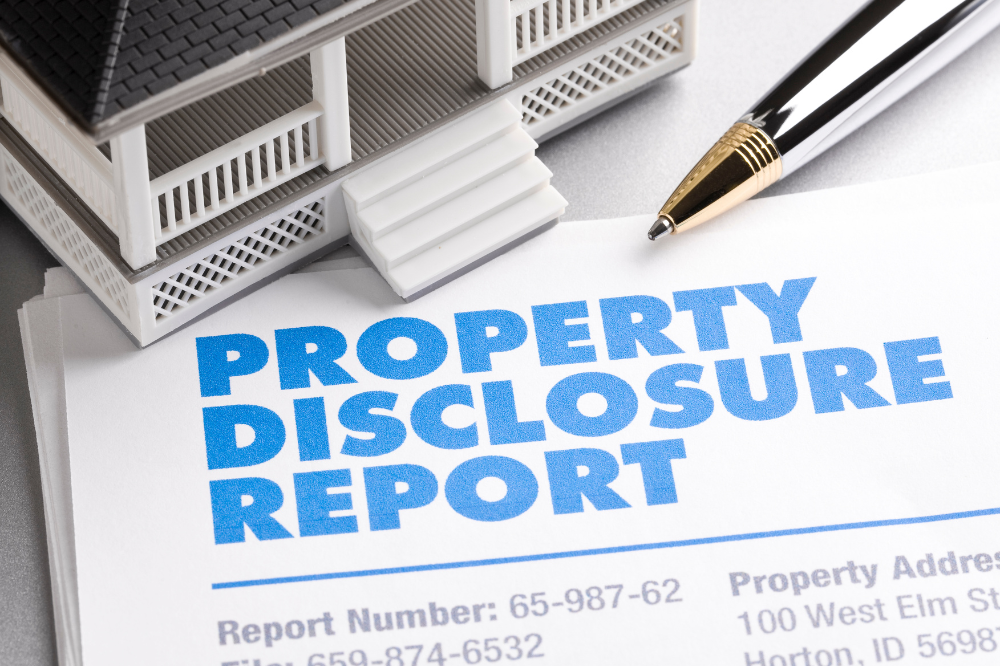If you’re buying or selling a home, you’ll inevitably encounter “disclosures.” But what exactly are they and how do they factor into a real estate transaction? In this guide, we aim to demystify this topic.
What Are Disclosures in a Real Estate Transaction?
In this guide, we’re going to walk you through the ins and outs of disclosures in a real estate transaction. Here are the points we’ll cover:
- The definition of a disclosure
- The purpose of disclosures
- Types of disclosures
- The timing of disclosures
- The consequences of failing to disclose
Here’s a closer look at each.
The Definition of a Disclosure
In the context of a real estate transaction, a disclosure refers to any known issue or defect with the property that needs to be communicated to potential buyers.
Related: Expert tips and strategies for selling your home in Boston
The Purpose of Disclosures
Disclosures are all about transparency. They ensure that buyers know exactly what they’re getting into, helping them make informed decisions about their prospective investment.
Types of Disclosures
There are numerous types of disclosures, some of which are required by federal law. These can include everything from known structural problems to the presence of lead-based paint, and even neighborhood nuisances.
Related: Buying your dream home in Boston? Here’s what you need to know
The Timing of Disclosures
Disclosures should be provided to the buyer as early as possible in the transaction process. This gives the buyer ample time to consider the disclosed information before finalizing the purchase.
The Consequences of Failing to Disclose
Failing to disclose known issues can lead to legal trouble down the line. It’s important for sellers to be honest and upfront to avoid potential lawsuits.
FAQ About Disclosures in a Real Estate Transaction
Here are some frequently asked questions about disclosures in a real estate transaction. If you don’t see the answers you’re looking for here, please call our office. We’re here to help.
What is a seller’s disclosure?
A seller’s disclosure is a document provided by the seller detailing known issues or defects with the property.
Related: Should you ever waive contingencies in a real estate transaction?
Do all states require a seller’s disclosure?
Requirements vary by state. Some require a detailed disclosure, while others may require a less comprehensive one.
What happens if a seller lies on a disclosure?
If a buyer discovers that a seller knowingly lied on a disclosure, they could potentially file a lawsuit for damages.
Related: Why you should get a home inspection
What if the seller doesn’t know about a problem?
Typically, sellers are only required to disclose issues they’re aware of. It’s always a good idea for buyers to get a home inspection to uncover any unknown problems.
Related: 5 bedroom staging hacks that can help you sell your home
Can a buyer back out after receiving disclosures?
In many cases, yes. If a buyer isn’t comfortable with the disclosed information, they often have a window of time to back out of the purchase.
Navigating the world of real estate transactions can be complex, but understanding key aspects like disclosures can make the journey much smoother. Remember, transparency is the best policy, ensuring a fair deal for all parties involved.
Explore luxury condos in Boston here
Are You Buying or Selling a Home in Boston?
If you’re searching for a luxury home for sale in Boston, or if you’re selling your home, we can help. Call 617-967-5271 or get in touch with us online so we can discuss your needs. In the meantime, please feel free to browse our listings in the following communities:
- Andover (Boston) homes for sale
- Beacon Hill (Boston) homes for sale
- Boston Seaport homes for sale
- Fenway (Boston) homes for sale
- Homes for sale in Boston’s Back Bay
- Homes for sale in South Boston
- Homes for sale in Downtown Boston
- Midtown Boston homes for sale
- North End Boston homes
- South End Boston homes
- Waterfront homes for sale in Boston
Let’s Talk!

